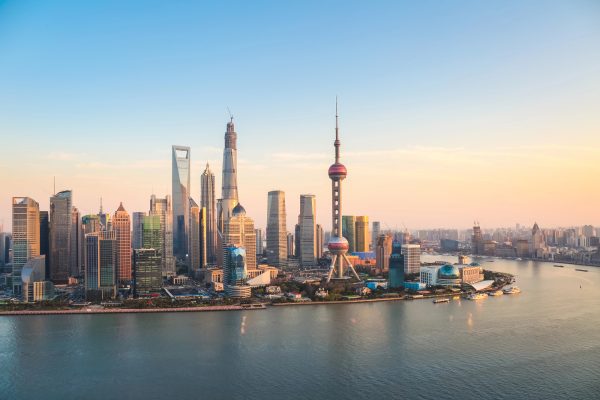The 2024 Lujiazui Forum, held in Shanghai from June 19 to 20, continued its tradition as a pivotal platform for China’s financial discourse. Since its inception in 2008, the forum has become instrumental as a venue where government officials, financial regulators, and industry leaders gather to share insights on pressing economic issues and make significant announcements related to China’s financial reforms.
During the forum, Pan Gongsheng, the governor of the People’s Bank of China (PBOC), reiterated a commitment to supportive monetary policies while clearly distancing itself from Western-style quantitative easing. Instead, Pan emphasized a gradual approach to incorporating bond purchases as a liquidity management tool. This pivot aligns China’s monetary policy more closely with global central banking practices, moving from quantity-based to price-based regulation.
Pan also suggested potential interest rate reforms, aiming to prioritize a single short-term rate to guide markets, thus reducing reliance on the one-year policy rate, signaling a step toward modernizing China’s monetary policy framework.
This renewed approach comes as China grapples with significant post-pandemic economic challenges. Property investments have slumped, dropping over 10 percent year-on-year in the first five months of 2024, while industrial output faces headwinds from new tariffs imposed by the United States and European Union. Data for May indicated the economic recovery was patchy, with industrial production falling short of estimates and an accelerating decline in home prices, despite an increase in retail sales growth.
Markets expect Pan’s tools, which include relending, open market operations, and reserve requirement ratio cuts, to be selectively deployed to bolster economic activity against these obstacles. However, investor confidence remains fragile, partly due to regulatory uncertainty and ongoing woes in the property market, which both reflect and perpetuate weak sentiments.
China Securities Regulatory Commission (CSRC) Chair Wu Qing’s first forum appearance since his appointment reinvigorated investor sentiment. His announced reforms target optimizing the primary market pricing mechanism, supporting mergers and acquisitions, and enhancing research and development funding. Wu redoubled his commitment to stringent regulatory oversight to combat fraudulent listings and accounting issues, underscoring his zero-tolerance approach to market misconduct.
The highlight was Wu’s announcement of the “STAR Market Eight Measures.” These measures are designed to reinforce the STAR Market’s focus on “hard technology,” prioritizing the listing of companies breaking through critical core technologies. They also include optimizing stock and debt financing systems, establishing an “express gateway” for such financing and mergers and acquisitions, and improving the efficiency of refinancing reviews.
Since its launch in 2019, the STAR Market has aimed to be the go-to listing destination for “hard-tech” companies, hosting 573 companies with a combined market value of 5.2 trillion yuan. As a cornerstone of Beijing’s tech self-sufficiency drive, it aims to nurture home-grown tech giants and reduce reliance on U.S. technology. However, the STAR Market 50 index, tracking the 50 biggest stocks on the board, dropped 0.7 percent on Wednesday, reflecting continued bearish sentiment among small-cap investors amid worries about earnings and delisting risks.
To bolster listed companies’ investment value, Wu highlighted initiatives to encourage dividend payouts and buy-backs, echoing the State Council’s nine-point guideline for the development of China’s capital market. The CSRC will prioritize regulatory oversight to reduce financial risk and protect investors, with increased surveillance of high-frequency trading and better oversight of over-the-counter derivatives to curb market disruptions.
Wu also stressed Shanghai’s goal of becoming a world-class international financial hub, attracting more foreign financial institutions and leveraging the city’s strengths to cultivate top-tier investment banks and institutions.
Despite the CSRC chair’s encouraging words, challenges remain in aligning technological innovation with the capital market. A crucial element for sustaining tech innovation is cultivating patient capital – focusing on long-term gains over quick profits. Wu emphasized the need to attract medium- and long-term capital into the market and enhance the venture capital and private equity investment chain.
The 2024 Lujiazui Forum’s significance lies in its pivotal role as a platform for Beijing to articulate its financial and economic policy directions ahead of the crucial Third Plenum in July. The discussions at the forum underscored Beijing’s acknowledgement of the vital importance of adept monetary policies and comprehensive financial reforms in fostering economic stability and sustainable growth.
However, the efficacy of these reforms remains uncertain as they vie with other priorities. Despite the announced initiatives, the underlying economic fundamentals are not robust enough to guarantee immediate success. The persistent decline in the property sector, despite various policy adjustments, poses a substantial drag on the broader economic recovery. The PBOC’s efforts to provide monetary stimulus often conflict with the necessity of stabilizing the renminbi’s value, creating a delicate balancing act.
Furthermore, investor sentiment is dampened by regulatory uncertainties that have impacted various sectors, including technology and finance. While the government’s crackdown on financial misconduct and fraudulent practices is imperative, it has also fostered an environment of caution and hesitation among investors.
Moreover, the competition for financial resources is intensifying as multiple sectors seek support. The drive for technological innovation must be balanced against the immediate needs of traditional industries and the broader economy. The path to China’s economic recovery is still replete with complexities and challenges.


















.png)


Discussion about this post